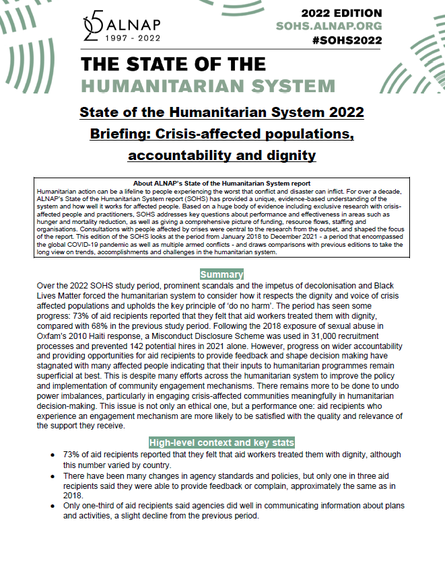
This briefing provides an overview of key facts and figures from 2022 edition of The State of the Humanitarian System (SOHS) on crisis-affected populations, accountability and dignity.
Over the 2022 SOHS study period, prominent scandals and the impetus of decolonisation and Black Lives Matter forced the humanitarian system to consider how it respects the dignity and voice of crisis affected populations and upholds the key principle of ‘do no harm’. The period has seen some progress: 73% of aid recipients reported that they felt that aid workers treated them with dignity, compared with 68% in the previous study period. Following the 2018 exposure of sexual abuse in Oxfam’s 2010 Haiti response, a Misconduct Disclosure Scheme was used in 31,000 recruitment processes and prevented 142 potential hires in 2021 alone. However, progress on wider accountability and providing opportunities for aid recipients to provide feedback and shape decision making have stagnated with many affected people indicating that their inputs to humanitarian programmes remain superficial at best. This is despite many efforts across the humanitarian system to improve the policy and implementation of community engagement mechanisms. There remains more to be done to undo power imbalances, particularly in engaging crisis-affected communities meaningfully in humanitarian decision-making. This issue is not only an ethical one, but a performance one: aid recipients who experience an engagement mechanism are more likely to be satisfied with the quality and relevance of the support they receive.
